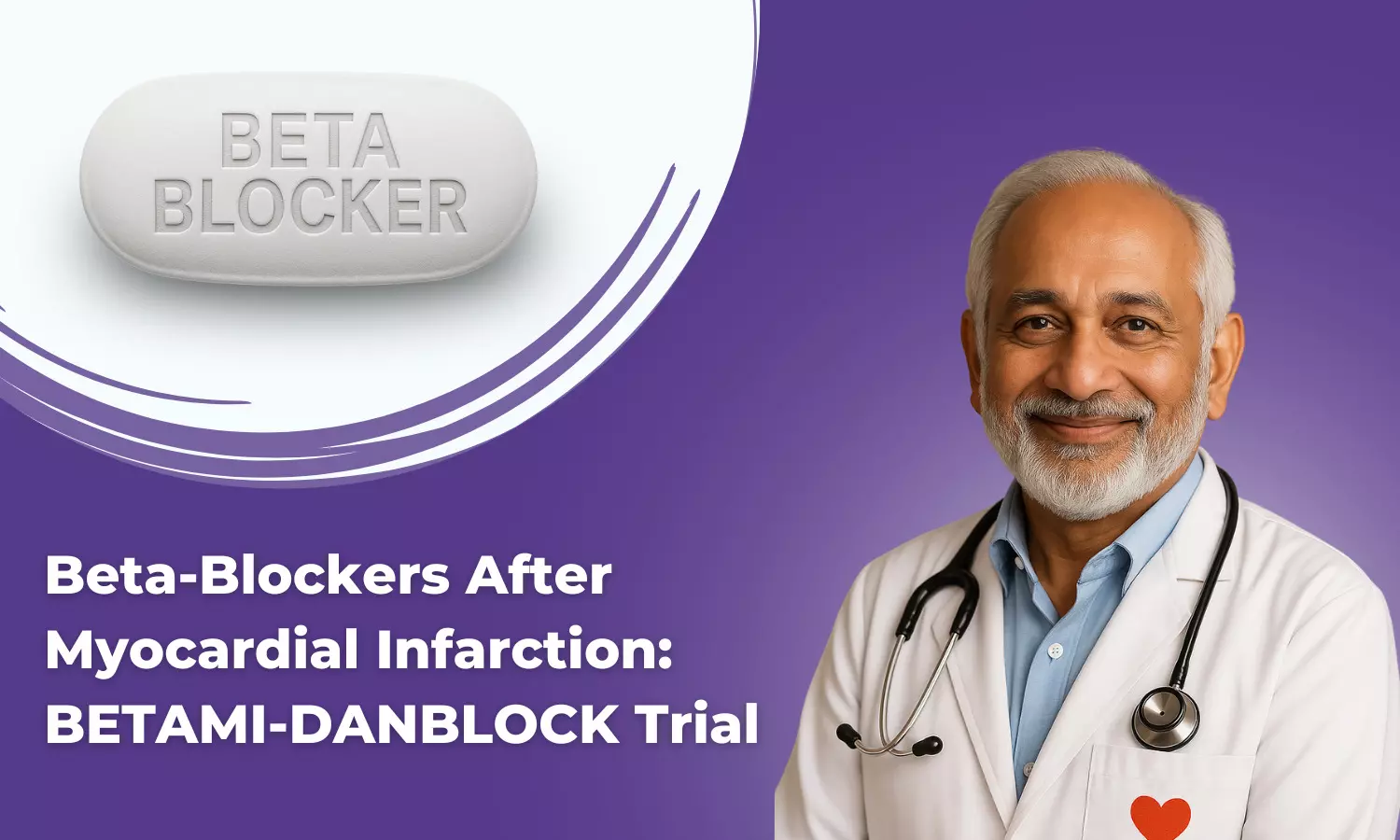The Betami-Danblock Trial: Randomized Discontinuation Of Beta-Blockers After Myocardial Infarction
- byDoctor News Daily Team
- 28 October, 2025
- 0 Comments
- 0 Mins

BETAMI-DANBLOCK evaluates whether discontinuation of beta-blockers after MI is safe in patients with preserved or mildly reduced LVEF (>40%) in the modern PCI and secondary prevention era. The trial randomizes 5,574 patients within 14 days of MI to beta-blocker therapy or no beta-blocker, with median follow-up of 3.5 years (Figure 1). Figure 1: Patient Randomization and Follow-up in the BETAMI-DANBLOCK Trial The primary endpoint, all-cause mortality or MACE (recurrent MI, unplanned revascularization, HF, ischaemic stroke, malignant ventricular arrhythmia), is significantly reduced with beta-blockers (HR 0.85, p=0.03, Figure 2). Figure 2: Incidence of All-Cause Mortality or MACE Secondary endpoints, including recurrent MI and heart failure, also favour beta-blocker therapy, while ischemic stroke shows no benefit (Figure 3). Figure 3: Secondary Endpoints Outcomes Subgroup analyses demonstrate consistent benefit across sex, age, country, MI type (STEMI/NSTEMI), and LVEF strata. Clinical benefit persists irrespective of beta-blocker dose (≤50 mg vs. >50 mg metoprolol equivalent). Figure 4: Subgroup Analyses of the Primary Endpoint Conclusion: The trial establishes that long-term beta-blocker therapy after MI reduces death and MACE in patients with LVEF >40%, reinforcing their role in secondary prevention. In this randomized, controlled trial, oral betablocker therapy led to a lower risk of death from any cause or major adverse cardiovascular events (the composite primary end point) than no betablocker therapy among patients with a myocardial infarction and a preserved or mildly reduced left ventricular ejection fraction. The clinical takeaway is that patient characteristics, including age, comorbidities, and baseline EF—strongly influence trial outcomes. The benefit of beta-blockers may therefore be context-dependent rather than universally applicable. At present, there is no definitive conclusion for patients with preserved EF after myocardial infarction, and the panel highlights that the cardiology community is awaiting pooled data and meta-analyses to refine future guidelines. Reference: Munkhaugen J, Kristensen AMD, Halvorsen S, et al. Beta-Blockers after Myocardial Infarction in Patients without Heart Failure. N Engl J Med. Published online August 30, 2025. doi:10.1056/NEJMoa2505985
Disclaimer: This website is designed for healthcare professionals and serves solely for informational purposes.
The content provided should not be interpreted as medical advice, diagnosis, treatment recommendations, prescriptions, or endorsements of specific medical practices. It is not a replacement for professional medical consultation or the expertise of a licensed healthcare provider.
Given the ever-evolving nature of medical science, we strive to keep our information accurate and up to date. However, we do not guarantee the completeness or accuracy of the content.
If you come across any inconsistencies, please reach out to us at
admin@doctornewsdaily.com.
We do not support or endorse medical opinions, treatments, or recommendations that contradict the advice of qualified healthcare professionals.
By using this website, you agree to our
Terms of Use,
Privacy Policy, and
Advertisement Policy.
For further details, please review our
Full Disclaimer.
Recent News
Lower ketone levels and improved exercise capacity...
- 01 November, 2025
Citrus Flavonoids effective nutritional adjunct to...
- 01 November, 2025
Daily kimchi intake linked to reduced BMI and bell...
- 01 November, 2025
Daily Newsletter
Get all the top stories from Blogs to keep track.


0 Comments
Post a comment
No comments yet. Be the first to comment!